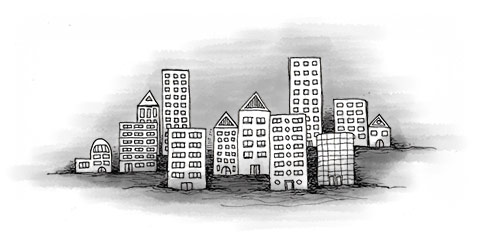‘Unfurnished’ might mean only the barest of essentials but is more likely to include a kitchen unit, curtain rails and lighting fixtures, or it might mean semi-furnished, with kitchen equipment, a cooker, refrigerator and washing machine. In most cases, it includes a television aerial socket with access to local stations and probably BBC and CNN via satellite; you might also have access to other networks and movie channels, although you might have to pay for them. There’s also furnished property on the market, but it is harder to find and of course more expensive. Most people want a new property and there are plenty of them available.
Finding a Rental Property
Renting accommodation in Saudi Arabia is a straightforward, well-established practice. Major international companies with trading links in the region often have housing arrangements in the form of long-term leases on properties for their staff. If you have to find your own accommodation, your sponsor and his staff will invariably help. There’s considerable choice in all price bands and it’s usually quite straightforward to find the type of property you want.
Having decided on a budget, you need to decide on the location of the property, weighing up the importance of access to your place of work, type and size of living space you want, whether villa or apartment, the number of bedrooms, etc.. Saudi Arabian cities are small by international standards and driving times between home and work are short, usually without substantial traffic jams.
There are a number of ways to find a rental property in Saudi Arabia, including the following:
- Consult your company’s human resources manager, work colleagues and friends. Word of mouth is usually the best recommendation in the region.
- Talk to members of any clubs and associations that you join.
- Check the notice boards outside accommodation blocks and look in the local English-language newspapers and magazines. Talk to porters or administration staff in the buildings that you like the look of. They will often know about the availability of accommodation.
- Consult estate agents. As well as having a wide knowledge of the market, area and costs, they generally provide transport and accompany you on viewings. Listen carefully to the proposed charges and in particular to the inclusions and exclusions, specifically the air-conditioning and utility charges. Ask for faxed confirmation before making a decision, and certainly before signing the contract. Estate agents are frequently the wives of sponsored expatriates, who have the time to get to know the area and the facilities on offer.
- Visit compounds, which frequently have an office of the company running it, and ask about availability and facilities.

